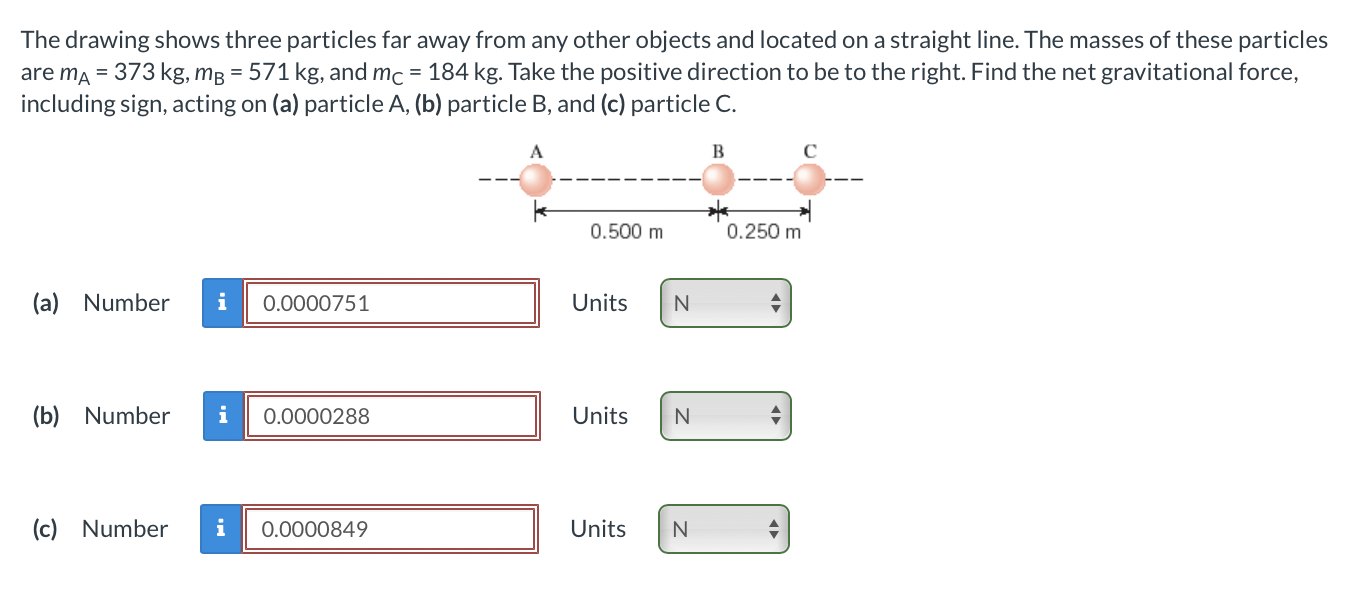The Drawing Shows Three Particles Far Away From Any Other
The Drawing Shows Three Particles Far Away From Any Other - The masses of these particles are m a =375 kg,m g =504 kg, and m c =104 kg. Take the positive direction to be to the right. The masses of these particles are ma = 363 kg, mb = 517 kg, and mc = 154 kg. D1 = 0.432 m and d2 = 0.216 m. Take the positive direction to be to the right. The masses of these particles are ma = 340 kg, m3 = 509 kg, and mc = 101 kg. Take the positive direction to be to the right. The masses of these particles are ma = 363 kg, mg = 517 kg, and me = 154 kg. Take the positive direction to be to the right. Find the magnitude and direction of the net gravitational force acting on (a) particle a, (b) particle b, and (c) particle c. Web the drawing shows three particles far away from any other objects and located on a straight line. Take the positive direction to be to the right. Find the magnitude and direction of the net gravitational force acting on (a) particle a, (b) particle b, and (c) particle c. Take the positive direction to be to the right. Find the. Find the magnitude and direction of the net gravitational force acting on (a) particle a, (b) particle b, and (c) particle c. Take the positive direction to be to the right. The drawing shows three particles far away from any other objects and located on a straight line. D1 = 0.432 m and d2 = 0.216 m. Web the drawing. The masses of these particles are ma = 344 kg, m8 = 502 kg, and mc = 177 kg. Find the net gravitational force, including sign, acting on (a) particle a , Web the drawing shows three particles far away from any other objects and located on a straight line.the masses of these particles are ma=396kg.mg=542kg.and mc=192kg.take the positive direction. The masses of these particles are m a =375 kg,m g =504 kg, and m c =104 kg. Take the positive direction to be to the right. Take the positive direction to be to the right. D1 = 0.432 m and d2 = 0.216 m. The masses of these particles are ma = 363 kg, mg = 517 kg, and. Web the drawing shows three particles far away from any other objects and located on a straight line. Find the magnitude and direction of the net gravitational force acting on (a) particle a, (b) particle b, and (c) particle c. The net gravitational force, including. The masses of these particles are m a =375 kg,m g =504 kg, and m. Web the drawing shows three particles far away from any other objects and located on a straight line. The masses of these particles are m a = 359 kg, m b = 584 kg, and m c = 121 kg. Click the card to flip f=g ( (ma mb)/d^2) The drawing shows three particles far away from any other objects. Take the positive direction to. The masses of these particles are ma = 363kg,mb = 517kg, m a = 363 k g, m b = 517 k g, and mc = 154kg m c = 154 k g. The masses of these particles are $m_{\mathrm{a}}=363 \mathrm{~kg}_{0} m_{\mathrm{b}}=517 \mathrm{~kg}_{o}$ and $m_{\mathrm{c}}=154 \mathrm{~kg}.$ find the magnitude and direction of the net gravitational. In summary, the drawing shows three particles far away from any other objects and located on a straight line. The masses of these particles are m a = 307 kg, m b = 591 kg, and m c = 135 kg. The masses of these particles are m a =375 kg,m g =504 kg, and m c =104 kg. Web. Find the magnitude and direction of the net gravitational force acting on each of the three particles (let the direction to the right be positive). The drawing shows three particles far away from any other objects and located on a straight line. Find the net gravitational force, including sign, acting on (a) particle a, (b) particle b, and (c) particle. The drawing shows three particles far away from any other objects and located on a straight line. The masses of these particles are ma = 340 kg, mb = 567 kg, and mc = 139 kg. Click the card to flip f=g ( (ma mb)/d^2) The masses of these particles are m a =375 kg,m g =504 kg, and m. Take the positive direction to be to the right. The drawing shows three particles far away from any other objects and located on a straight line. Find the magnitude and direction of the net gravitational force acting on: Take the positive direction to be to the right. Find the net gravitational force, including sign, acting on (a) particle a, (b) particle b, and (c) particle c. Web the drawing shows three particles far away from any other objects and located on a straight line. The masses of these particles are m a = 359 kg, m b = 584 kg, and m c = 121 kg. In summary, the drawing shows three particles far away from any other objects and located on a straight line. The masses of these particles are ma 315 kg; Take the positive direction to be to the right. The masses of these particles are ma = 344 kg, m8 = 502 kg, and mc = 177 kg. The drawing shows three particles far away from any other objects and located on a straight line. The masses of these particles are ma = 363 kg,mb = 517 kg m a = 363 k g, m b = 517 k g, and mc = 154 kg m c = 154 k g. Take the positive direction to. Mb 524kg, and mc = 161kg. The masses of these particles are m a =375 kg,m g =504 kg, and m c =104 kg.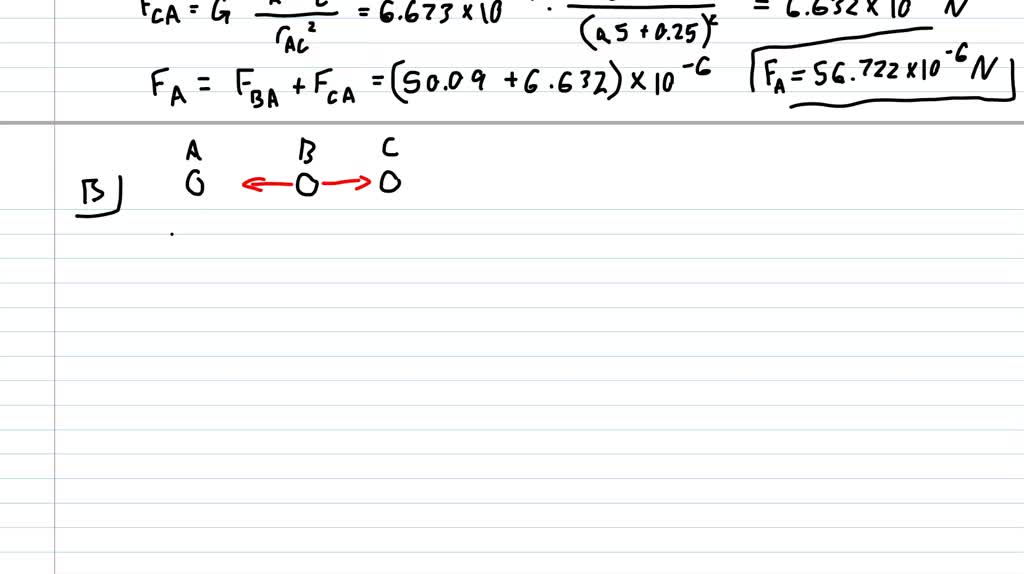
SOLVED The drawing shows three particles far away from any other
Solved The drawing shows three particles far away from any
Solved The drawing shows three particles far away from any
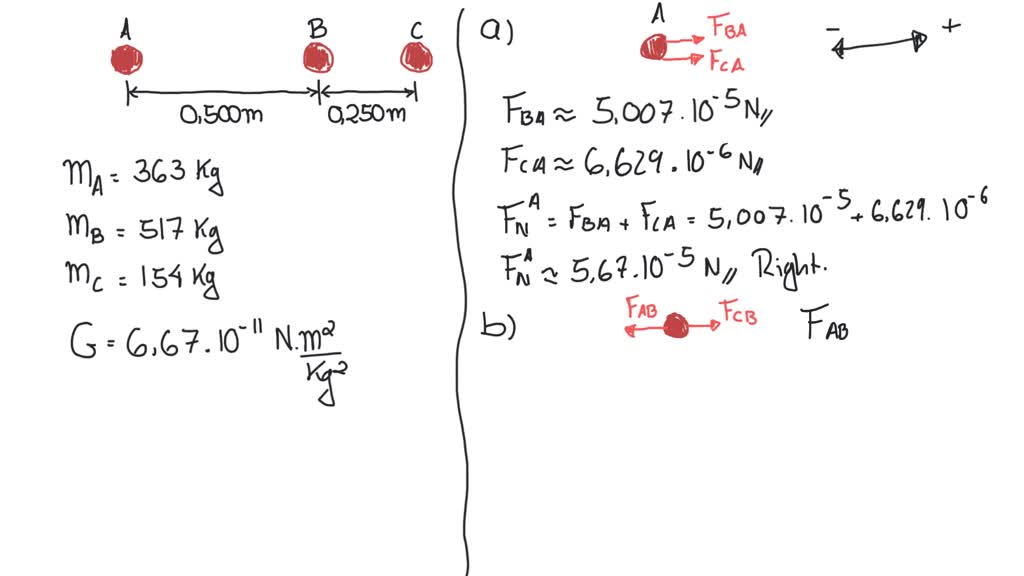
The drawing below shows three particles far away from… SolvedLib
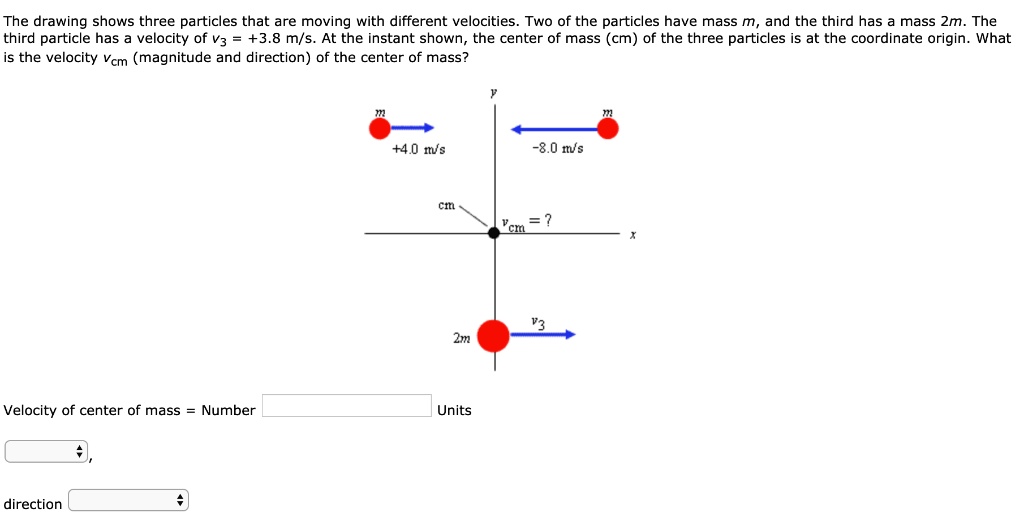
SOLVED The drawing shows three particles that are moving with
Solved The Drawing Shows Three Particles Far Away From An...
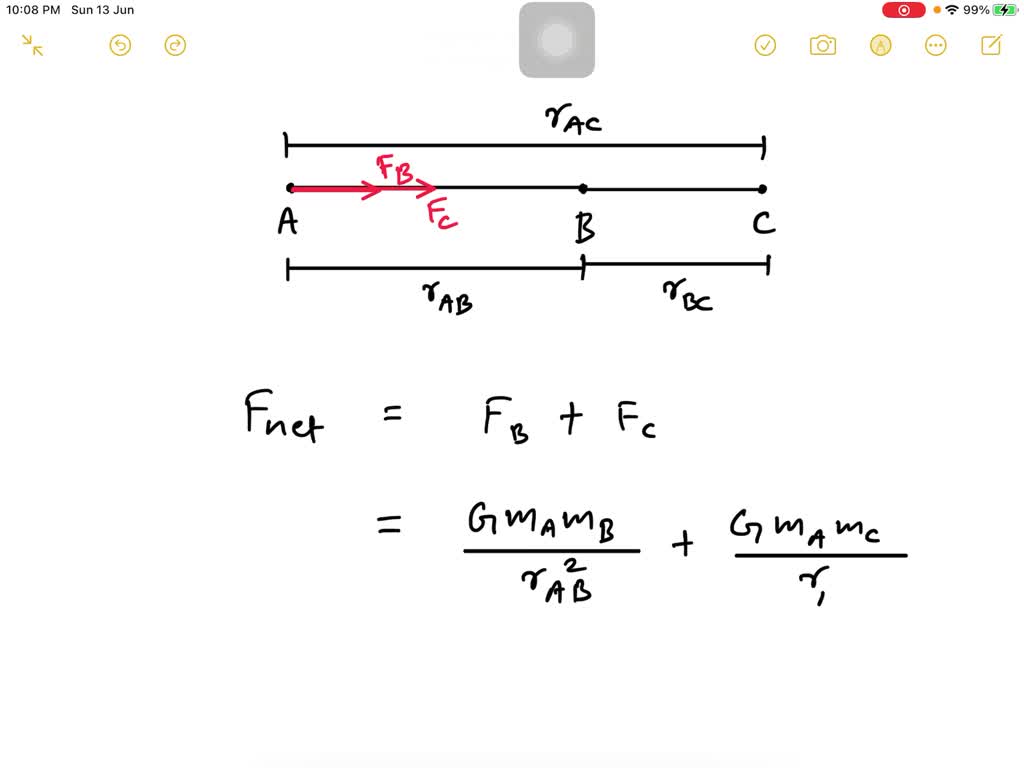
SOLVEDThe drawing shows three particles far away from any other
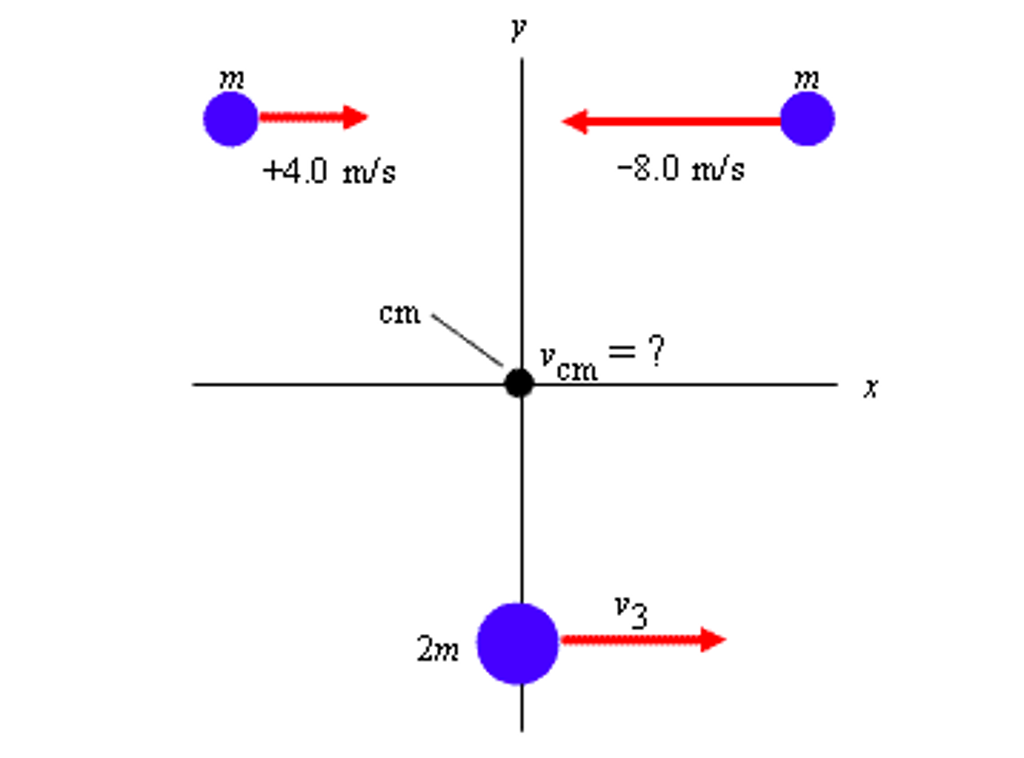
Solved The drawing shows three particles that are moving
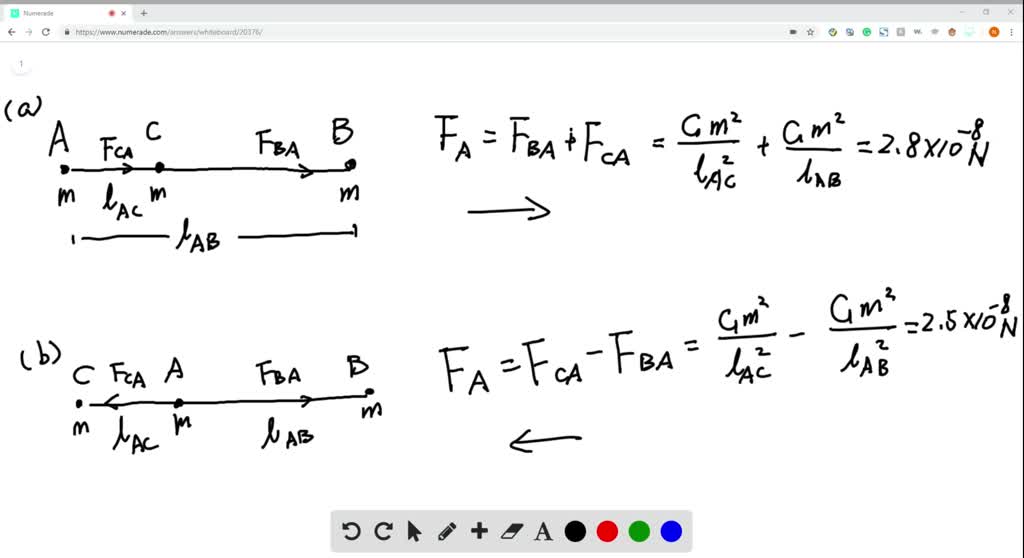
The drawing shows three particles far away from any o… SolvedLib
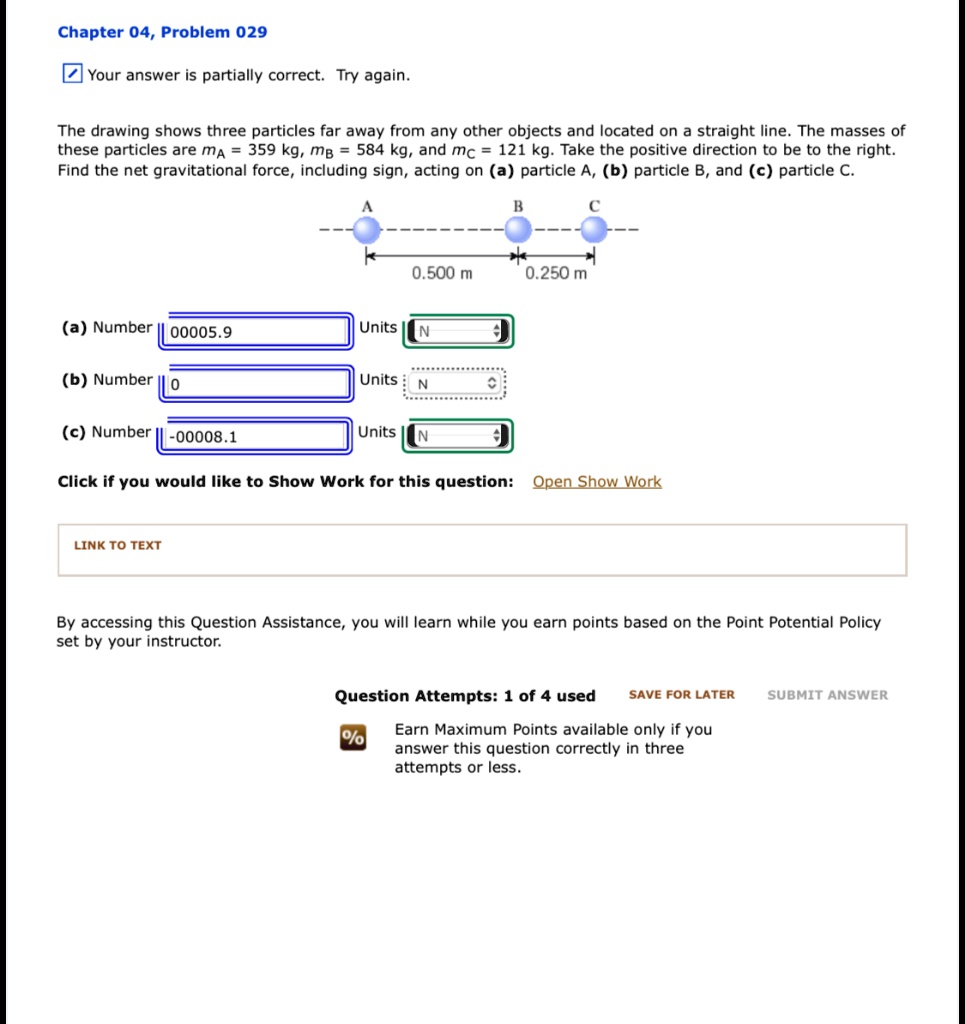
SOLVED Chapter 04, Problem 029 Your answer is partially correct Try
Find The Magnitude And Direction Of The Net Gravitational Force Acting On (A) Particle A, (B) Particle B, And (C) Particle C.
The Masses Of These Particles Are Ma = 363 Kg, Mb = 517 Kg, And Mc = 154 Kg.
The Masses Of These Particles Are M A = 307 Kg, M B = 591 Kg, And M C = 135 Kg.
Click The Card To Flip F=G ( (Ma Mb)/D^2)
Related Post:

